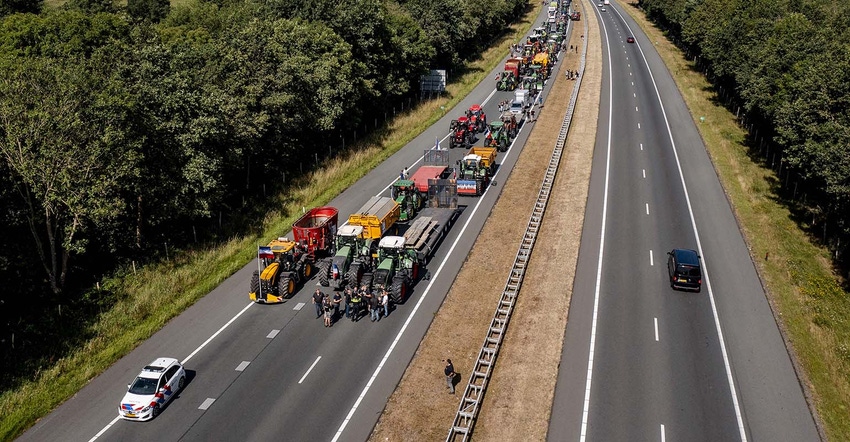
On July 28, 2022, the Netherlands Prime Minister, Mark Rutte, asked farmers to stop their ‘life-threatening’ protests. Farmers, according to the Agency France Press, have resumed their protest. Rutte claims, “The protest by a small group of farmers on highways yesterday and this morning are unacceptable. Woefully endangering others, damaging our infrastructure, and threatening people who help clean up is beyond all limits…”
So, what are farmers protesting?
The Netherlands is alleged by the bureaucrats in Brussels to be the world’s second-largest agriculture exporter. It is also one of the top greenhouse gas emitters because of ammonia emissions. Back on July 26, I did an interview with CBN News which put out an article that said farmers everywhere will have to fight climate change activism.
Yesterday afternoon (Aug. 7), the U.S. Senate passed a new bill which will require us to do even more to fight climate change. Who knows what is in this piece of legislation as it relates to agriculture? Back on July 11, 2022, I wrote a blog about nitrogen-ammonia cuts that are being proposed by the Dutch government. I talked about Dutch police shooting at tractor-riding farmers. (At least now the government may be charging the police for shooting at the farmers.)
Why the Dutch matter
The agricultural industry in the Netherlands employs about 4% of the Dutch labor force. We tend to think that the Netherlands only export flower bulbs and fresh cut flowers, but it also produces and ships abroad tomatoes, chiles, cucumbers, dairy products, and apples, among other things. The Dutch had established well-known trade routes years before the U.S. was established. The Netherlands is also considered the fifth most competitive economy in the world. You might not believe it but the Netherlands is ranked seventh among all countries exporting goods and services.
The Netherlands may want to look at Sri Lanka and find that when people are hungry, they revolt. The New York Times, Washington Post and even The Chicago Tribune are now pointing out that Sri Lanka is in food freefall. We think 9% inflation is terrible; how about over 50% inflation? Food shortages have caused many Sri Lankan families to skip meals.
The Sri Lankan government is now attempting to use government subsidies to revitalize farming and tourism, but so many bombs are going off in the country that most people do not want to go to this great tourist mecca. This is, in part, because the former President of Sri Lanka, Gotabaya Rajapaksa, had banned pesticides and fertilizers in a feeble attempt to remake the country’s agriculture using organic production methods. In mid-July Sri Lanka's parliament elected longtime politician Ranil Wickremesinghe as the country's new president. Rajapaksa fled the country after months of protests calling for his resignation. His policy was supported by the government.
As in the Netherlands, the government will find out that when there is insufficient food there are riots and the government will fall.
While pesticides and fertilizers may cause a host of environmental and health problems, people would rather eat than starve.
Now of course the Sri Lankans are allowed to use synthetic fertilizers and pesticides. Sri Lankan leadership, as with the Netherlands, cannot say they were not warned. The Netherlands should look at Sri Lanka because Sri Lanka crystalizes the debate over conventional farming vs. organic farming. Organic farming, which is perfectly acceptable, will ironically undercut production. Synthetic fertilizer, as the Netherlands has found out, causes crops to grow bigger and faster but also causes some environmental difficulties. It’s a tradeoff until new solutions can be found.
As we all know, the green revolution started by Norman Borlaug helped lift many countries out of poverty. Will the Netherlands face the same fate as Sri Lanka? Practices such as organic agriculture may be popular with the press, but as Sri Lanka found out, people starve when we do not have fertilizer and pesticides.
Hopefully, the Dutch leadership, including Prime Minister Rutte, will learn the lessons that come from Sri Lanka. Let’s hope our leaders at USDA, EPA and The White House understand that if you take away the tools that modern agriculture has developed, we all starve.
Our leaders might also look at what happened during the French Revolution when food shortages developed.
The opinions of the author are not necessarily those of Farm Futures or Farm Progress.
Read more about:
ClimateAbout the Author(s)
You May Also Like




